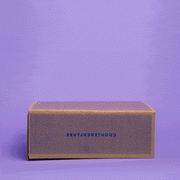In 2012, the global humanitarian organization Catholic Relief Services (CRS) set out to connect coffee growers in Nariño, Colombia with the burgeoning specialty coffee market. Counter Culture was enlisted to serve on the advisory board of this project, supporting the creation of these new value streams. Before the project, most producers sold their coffee for minimal premiums to two exporters working on behalf of two large buyers. Through the project, producers banded together in associations to sell coffee to quality-focused buyers. In doing so, they created a new business model previously unseen in the region.
As Asprocaes has grown, they’ve continued to differentiate their coffee offerings through planting variety specific plots and experimenting with different post harvest processing techniques. This season, following the trend of Anaerobic fermentation, a small group of farmers in the group set aside a portion of their harvest to give it a try. After the majority of the coffee cherry’s skin and mucilage was removed through pulping, the coffee was fermented in a sealed plastic drum fitted with an airlock for 100 hours. After this anaerobic fermentation period, the coffee was laid out on raised beds, where it dried slowly in the sun over the next 14 days. Removing most of the coffee's fruit before fermentation kept the coffee from developing overly boozy flavors, and instead enhanced the dynamic stone fruit complexity we love in Nariño coffees.
![]()
![]()
![]()
![]()
![]()
![]()
![]()
![]()











